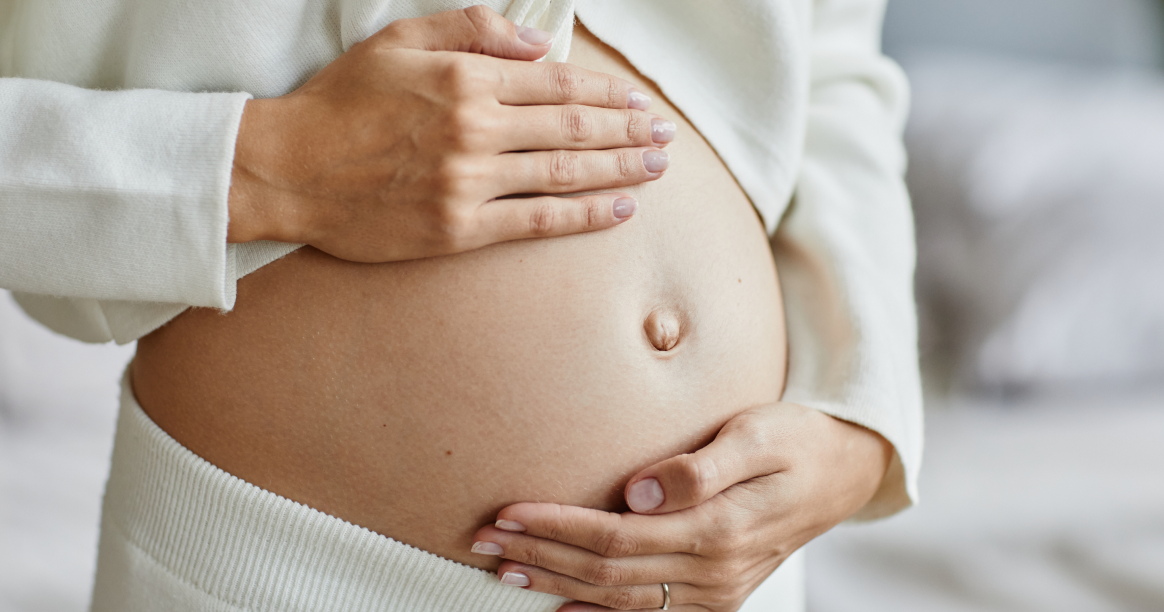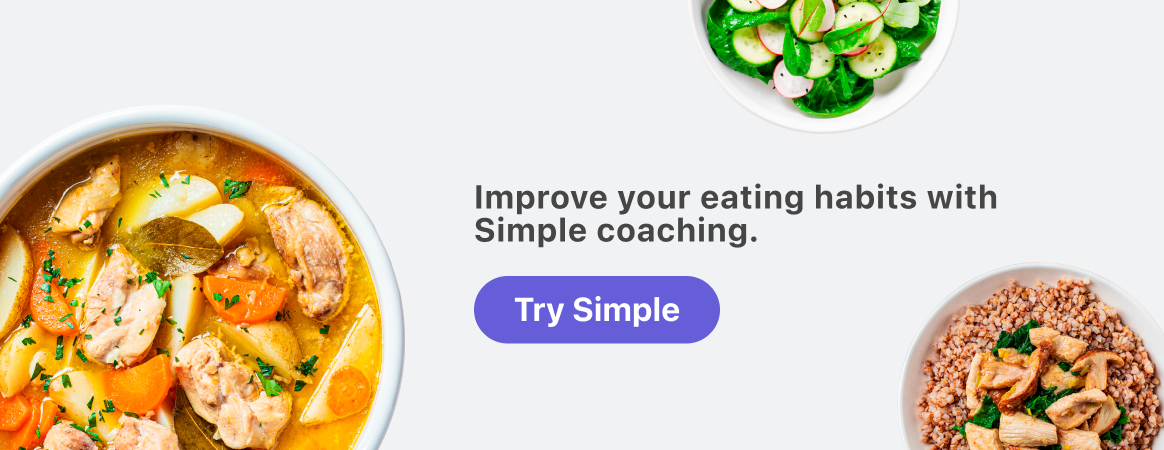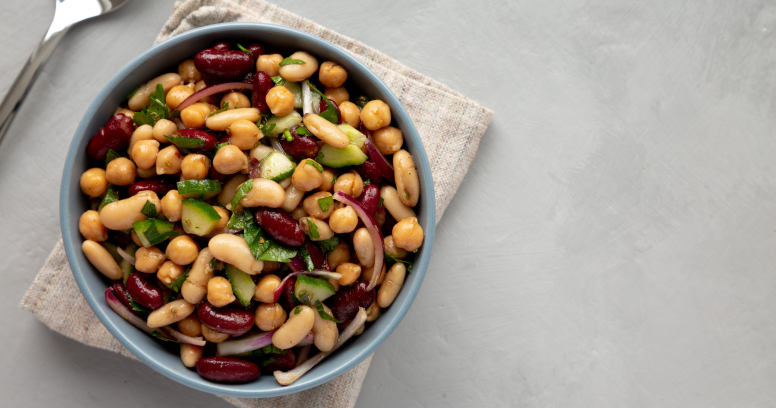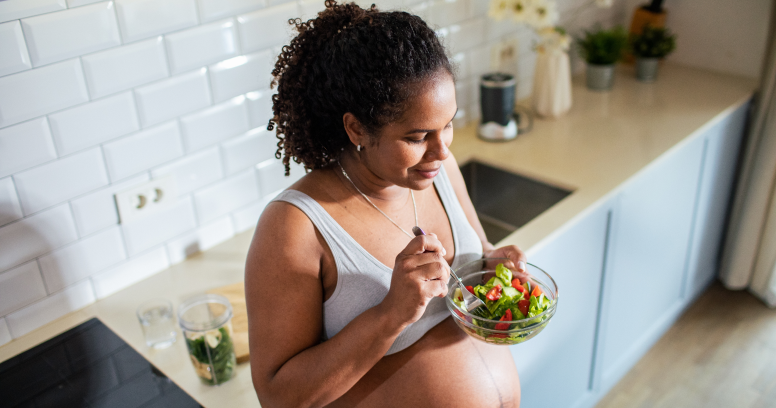Is intermittent fasting while pregnant safe?

Hey mama,
Congratulations! Soon, you’re going to be fully embracing your mom role to your new little peanut.
You’re already all-in on doing whatever it takes to make sure they’re growing healthy and strong. You’ve bought the books, registered for the classes, and started painting the nursery. And now, along with all this baby prep, you’re thinking about how to make sure your body is in tip-top shape to support this new little human (you’re growing a whole new person, eek!).

On your quest to make a nurturing nest for baby, you heard about the health benefits of fasting, which got you wondering: “Is intermittent fasting while pregnant safe?”
It’s an important question. Let’s find out!

Intermittent fasting while pregnant — is it safe?
When you’re pregnant, your body is changing rapidly. It’s preparing a place to grow your baby. It’s also making changes to prepare for delivery. Your health and wellness needs are changing as well. While there are some overall wellness habits you can generally do whether or not you’re pregnant, like exercise and eating well, there are some that are not safe to keep up. Intermittent fasting is one of them. Let’s dig a little deeper and talk about why.
Intermittent fasting has been shown to improve health parameters such as risk for high blood pressure, heart disease, diabetes, dementia, inflammation, and fat loss while maintaining muscle mass and metabolism.[1]
Maybe you’re familiar with these benefits because you’re already fasting and have seen them for yourself. You’ve lost weight, improved your metabolic health markers, and have a mental clarity you haven’t seen since pre-COVID. But as a mama-to-be, you’re considering whether it’s smart to keep going. Can you still fast while pregnant?
There is limited research done in the field of intermittent fasting and pregnancy for obvious ethical and safety reasons. What we do know is that there are risks if you do fast while pregnant, which is why it is not advised for the benefit of you and your baby.[2]
Even when fasting for religious or cultural reasons, pregnant and breastfeeding moms are given a pass if they wish to take it. From studying these women fasting through pregnancy, some concerns have been raised. We’ll look more at those later.
Is fasting safe before pregnancy?

If you’re not pregnant yet but thinking about becoming pregnant, you might be wondering if intermittent fasting is safe during your “trying” season.
In general, yes, it is safe. We advise that you consult with your healthcare provider first to ensure that fasting is appropriate for you. Some of the outcomes that can be achieved when fasting, including glycemic control and weight loss, could have positive benefits on fertility, especially in women living with PCOS.[3] The recommended methods of intermittent fasting for women look different than they do for men, especially if pregnancy is a near-future goal. We’ll come back to all this in a moment.
There are certain important nutrients needed in early pregnancy, such as folate, a nutrient that helps set baby up for success.[4] Deficiency in folate before and during pregnancy can lead to congenital defects like spina bifida, congenital heart disease, and many other serious complications.[5]
If you’re already fasting, be sure to stock up on health-promoting foods during your eating window. Focus on foods that will support your iron, folate, vitamin D, and calcium levels.[5,6,7,8] It’s also a good idea to add a prenatal vitamin to your daily routine, just to be sure.[9]
It’s because pregnancy brings such specific nutritional needs that we recommend not making any changes to your diet when pregnant or trying to get pregnant unless you do so with medical advice and support.
Does intermittent fasting harm fertility?
Remember how we mentioned that the best way to practice intermittent fasting looks different for men than for women?
Women’s hormones and bodily processes are closely tied to their nutritional intake. When a woman’s body feels like it isn’t getting enough food,[3] reproduction is one of the first things to shut down to preserve energy. So restricting food too much — whether through fasting or another kind of calorie restriction — can cause this pause in a woman’s menstrual cycle and reproductive capacity.
To prevent this, women need to take a gentler approach to fasting, building up fasting hours slowly. We also recommend that women don’t fast for longer than 18 hours to ensure adequate intake of nutrition and energy.
Listening to your body and watching for any unusual changes is important, no matter what fasting schedule you adopt. Look for slowed or paused cycles. Irregularly heavy cycles can also be a sign that your system is feeling stressed or something else may be occurring, so remember to always get medical support.
If you’re in a place where starting intermittent fasting makes sense for your body and goals, take our Simple quiz to find out which schedule is best for you.

Is intermittent fasting safe once you give birth?
Once you’ve brought your beautiful new baba into the world, you might start itching to regain your fitness and pre-baby body shape. Slow your roll just a little, though — it’s not quite time to let go of those extra baby-growing snacks just yet.
If you decide to breastfeed, you will most likely be your baby’s sole source of nourishment, and they’re still doing a lot of growing and developing. That means it’s not yet time to cut back your food intake; you’ll need those extra calories and nutrients. Continue to focus on getting lots of nutrition from a variety of healthful foods so you can fortify your nutrition for the baby’s benefit.
According to the CDC, eating about 300–400 extra calories per day is ideal for breastfeeding.[10] This need varies by mom and baby and would be higher if feeding multiple babies. These extra needs pretty much leave intermittent fasting while breastfeeding out.
But, if you aren’t breastfeeding, or you’re done, it may be safe to begin intermittent fasting. A bonus for your post-pregnancy goals, whatever they may be, is that intermittent fasting does not slow metabolism like regular calorie restriction and can help support your efforts. After you get the go-ahead from your doctor, read up on intermittent fasting for beginners and take our Simple quiz to find out which fasting schedule is best to ease into along with your new mom life.
It would also be a good idea to learn what to eat during intermittent fasting to make sure you are getting proper nutrition. Bringing a new little one into the world is a lot to recover from, and your body needs all of the support you can give it.
Does intermittent fasting help fertility?
Earlier, we mentioned that calorie restriction can affect women’s reproductive hormones. For some women, this is a good thing and can help increase fertility.
Women with PCOS often have an elevated number of reproductive hormones known as androgens (hyperandrogenism). This can cause irregular cycles and make getting pregnant more difficult. Intermittent fasting has been shown to decrease these hormones, and therefore, it may improve the chances of pregnancy.[3]
How long can a pregnant woman go without eating?

While we don’t recommend fasting during pregnancy, it does happen, usually for Ramadan or other religious practices. Fasting while pregnant for religious reasons is the only pregnant intermittent fasting group that’s been studied.[11] That’s most likely because weight loss is not a healthy focus when growth and development is the goal. For anything you’re trying to grow — plants, knowledge, muscles, new little humans — the requirement is more nourishment, not less.
Instead of pondering, “How long can I go without eating while pregnant?” think about when to squeeze in that snack for the 300–400 extra calories per day you need for steady weight gain.
Restricting intake can lead to deficiencies in key nutrients needed for fetal development, like calcium, folic acid, and iron. We recommend avoiding any extended fasting period outside of your natural fasting window during sleep.
The best approach is to listen to your body. Our bodies generally know what we need (but we’re not always great at listening to them). Eat when you’re hungry and focus on nourishing foods. Pregnancy is tough, but your body is made for this challenge, so support it by feeding yourself well. Remember to also seek support from your healthcare provider for how to maintain good energy levels throughout your pregnancy.
Risks of intermittent fasting while pregnant
Even when not pregnant, intermittent fasting can pose some risks and side effects, such as:
- Hunger and cravings. Is that not enough of a thing already during pregnancy? Your body knows what it needs to keep you healthy and support your baby. Take your appetite cues and cravings as signals to get that extra nutrition.
- Dizziness and headaches. Fasting does lower blood pressure and blood sugar. For someone trying to lower these numbers for health reasons, it’s a perk, but for pregnant women, it can be dangerous. If blood pressure or blood sugar drops too low, that increases the risk of falling. And, as your weight shifts and joints loosen, falling carries a greater risk of injury.
- Poor sleep or fatigue. Not only do you need to stock up on Zzzzs before those cluster feeds come a-knocking, but poor sleep can also lead to complications such as elevated blood pressure and gestational diabetes.[12] High blood pressure in pregnant women can also lead to a very dangerous complication called pre-eclampsia.
- Malnutrition. You may not technically be eating for two, but you’re definitely eating for 1+, and your deficiencies can lead to deficiencies and complications in your baby. Iron deficiency hinders healthy blood cell development and can lead to anemia.[13] Folate deficiency can lead to several serious birth defects.[14] Calcium deficiency can lead to poor fetal growth and even preterm delivery or spontaneous abortion.[15]
As you can imagine, mixing intermittent fasting and pregnancy can worsen these symptoms that are already common in pregnancy, especially early on. This increases the possibility of you being an unhappy and unhealthy oven for your bun.
Fasting while pregnant also presents your bun with its own set of risks and complications.
- Preterm birth. This means your bun may come out before it’s done.[16] Preterm birth can lead to serious risks like heart and respiratory complications and underdeveloped organs, leading to jaundice, intestinal, vision, and hearing problems. Underdeveloped organs can lead to issues like low blood pressure, low blood sugar, and difficulty regulating body temperature.
- Low fetal movement. Fetal movement is an indicator of a baby’s healthy growth and development.[17] Reduced movement is an indicator of developmental defects and possibly preterm labor
- Low infant birth weight. If mom isn’t getting enough nutrition or gaining enough weight, that can slow baby’s growth.[18,19]
- Anemia. Anemia in mom can lead to anemia in baby and can last up to and through the first year of life.[20]
Safer alternatives

If you’re concerned about gaining too much weight during pregnancy, talking to your doctor about this is a great place to start. According to the CDC, some women may need to gain certain amounts of weight depending on their pre-pregnancy BMI category (underweight, normal, overweight, or obese).[21] Your doctor will be able to guide you.
Either way, put these tips into place to help you gain a healthy amount of weight and ensure you and baby are well-nourished for the big day.
- Eat a well-balanced diet that includes a variety of fruits, vegetables, whole grains, healthy fats, and lean proteins. Usually, an additional 300–400 calories are needed throughout the second and third trimesters of pregnancy.[22]
- Exercise regularly. Check in with a doctor to see what’s safe, especially if physical activity is new to you. Generally, you can safely continue whatever your usual workout routine is unless it’s something like MMA fighting or sweating it out in a sauna.
- Stay hydrated by drinking plenty of water — proper hydration is important for regulating your blood pressure. It is also important for maintaining a nice, cushy amniotic sac for your baby to bounce around on.
- Get a good night’s rest. Good sleep helps prevent increased risk of gestational diabetes and pre-eclampsia.[23]

A woman’s prenatal health significantly influences pregnancy outcomes.[24] Good prenatal health reduces the risk of complications like preterm birth, low birth weight, and birth defects. Proper nutrition, prenatal vitamins, regular check-ups, and avoiding harmful substances are essential to support fetal development and ensure a healthy pregnancy.
How many kilos a pregnant woman should gain every month would depend on where she starts. If starting at a healthy weight, 0–11 kg in the first 12 weeks is good. After that, approximately 1–2 kg per week is recommended, according to the American College of Obstetrics and Gynecology.[25]
Eating a variety of foods helps babies grow in the womb, and they include:
- fiber (fruits, vegetables, whole grains, and beans and legumes) for folic acid and iron to prevent birth defects and anemia
- calcium (dairy, fortified cereals, and dark green leafy vegetables) for skeletal growth and development
- protein and healthy fats rich in omega-3 fatty acids for brain, muscle, and heart development
- Song DK, Kim YW. Beneficial effects of intermittent fasting: a narrative review. J Yeungnam Med Sci. 2023 Jan;40(1):4–11.
- Herrmann TS, Siega-Riz AM, Hobel CJ, Aurora C, Dunkel-Schetter C. Prolonged periods without food intake during pregnancy increase risk for elevated maternal corticotropin-releasing hormone concentrations. Am J Obstet Gynecol. 2001 Aug;185(2):403–12.
- Cienfuegos S, Corapi S, Gabel K, Ezpeleta M, Kalam F, Lin S, et al. Effect of Intermittent Fasting on Reproductive Hormone Levels in Females and Males: A Review of Human Trials. Nutrients [Internet]. 2022 Jun 3;14(11).
- Argyridis S. Folic acid in pregnancy. Obstetrics, Gynaecology & Reproductive Medicine. 2019 Apr 1;29(4):118–20.
- CDC. Folic acid [Internet]. Centers for Disease Control and Prevention. 2022.
- Iron. Fact Sheet for Health Professionals [Internet]. National Institute of Health. Office of Dietary Supplements. 2023 Jun 15.
- Kiely M, Hemmingway A, O’Callaghan KM. Vitamin D in pregnancy: current perspectives and future directions. Ther Adv Musculoskelet Dis. 2017 Jun;9(6):145–54.
- Calcium. Fact Sheet for Health Professionals [Internet]. National Institute of Health. Office of Dietary Supplements. 2022 Oct 6.
- Pregnancy vitamins and nutrients [Internet]. American Pregnancy Association. 2019.
- CDC. Maternal diet. Diet and Micronutrients [Internet]. Centers for Disease Control and Prevention. 2022 May 17.
- Glazier JD, Hayes DJL, Hussain S, D’Souza SW, Whitcombe J, Heazell AEP, et al. The effect of Ramadan fasting during pregnancy on perinatal outcomes: a systematic review and meta-analysis. BMC Pregnancy Childbirth. 2018 Oct 25;18(1):421.
- Liu L, Su G, Wang S, Zhu B. The prevalence of obstructive sleep apnea and its association with pregnancy-related health outcomes: a systematic review and meta-analysis. Sleep Breath. 2019 Jun;23(2):399–412.
- Georgieff MK. Iron deficiency in pregnancy. Am J Obstet Gynecol. 2020 Oct;223(4):516–24.
- US Preventive Services Task Force, Barry MJ, Nicholson WK, Silverstein M, Chelmow D, Coker TR, et al. Folic Acid Supplementation to Prevent Neural Tube Defects: US Preventive Services Task Force Reaffirmation Recommendation Statement. JAMA. 2023 Aug 1;330(5):454–9.
- Almaghamsi A, Almalki MH, Buhary BM. Hypocalcemia in Pregnancy: A Clinical Review Update. Oman Med J. 2018 Nov;33(6):453–62.
- Tith RM, Bilodeau-Bertrand M, Lee GE, Healy-Profitós J, Auger N. Fasting during Ramadan Increases Risk of Very Preterm Birth among Arabic-Speaking Women. J Nutr. 2019 Oct 1;149(10):1826–32.
- Huecker BR, Jamil RT, Thistle J. Fetal Movement. StatPearls Publishing; 2023.
- Gul Z, Rajar S, Shaikh ZF, Shafique K, Hossain N. Perinatal outcome among fasting and non fasting mothers during the month of Ramadan. Pak J Med Sci Q. 2018 Jul-Aug;34(4):989–93.
- Morrison JL, Regnault TRH. Nutrition in Pregnancy: Optimising Maternal Diet and Fetal Adaptations to Altered Nutrient Supply. Nutrients [Internet]. 2016 Jun 4;8(6).
- Abioye AI, McDonald EA, Park S, Ripp K, Bennett B, Wu HW, et al. Maternal anemia type during pregnancy is associated with anemia risk among offspring during infancy. Pediatr Res. 2019 Sep;86(3):396–402.
- CDC. Weight gain during pregnancy [Internet]. Centers for Disease Control and Prevention. 2022 Jun 13.
- Kominiarek MA, Rajan P. Nutrition Recommendations in Pregnancy and Lactation. Med Clin North Am. 2016 Nov;100(6):1199–215.
- Cannon S, Hayman M, Lastella M. Pregnant Women’s Attitudes and Beliefs towards Sleep and Exercise: A Cross-Sectional Survey. Clocks Sleep. 2023 Jan 17;5(1):34–44.
- Marshall NE, Abrams B, Barbour LA, Catalano P, Christian P, Friedman JE, et al. The importance of nutrition in pregnancy and lactation: lifelong consequences. Am J Obstet Gynecol. 2022 May;226(5):607–32.
- How much weight should I gain during pregnancy? [Internet]. American College of Obstetricians and Gynecologists. 2021 Aug.
